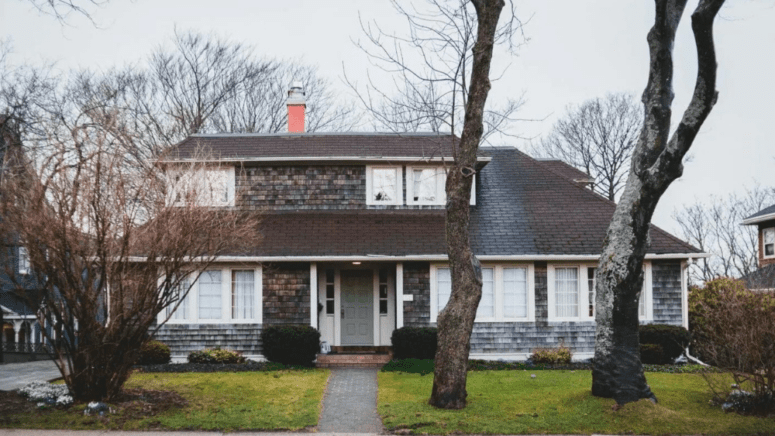Price My Home Right: Should I List My House High or Low?
- Published on
- 15 min read
-
 Jennifer Schmidt, Contributing AuthorClose
Jennifer Schmidt, Contributing AuthorClose Jennifer Schmidt Contributing Author
Jennifer Schmidt Contributing AuthorJennifer Schmidt is a freelance writer based in Vancouver, Washington, who specializes in real estate, human resources, and technology. When not writing, you’ll find her scanning real estate listings for the latest housing trends and decorating ideas.
-
 Richard Haddad, Executive EditorClose
Richard Haddad, Executive EditorClose Richard Haddad Executive Editor
Richard Haddad Executive EditorRichard Haddad is the executive editor of HomeLight.com. He works with an experienced content team that oversees the company’s blog featuring in-depth articles about the home buying and selling process, homeownership news, home care and design tips, and related real estate trends. Previously, he served as an editor and content producer for World Company, Gannett, and Western News & Info, where he also served as news director and director of internet operations.
With buyer demand dampening due to various economic factors, as a seller, you might be wondering, “How should I price my home?” Go too low, and you leave money behind; go too high, and buyers bolt. If you find it hard to choose the right price, our experts can help.
For this post, we’ve gathered expert advice and done extensive research about the various home pricing strategies. Each method has its advantages, depending on the current market conditions, your financial situation, and your selling objectives.
“I think you have a lot of factors, but currently, in our marketplace, it’s more about supply and demand,” says DeWayne Carpenter, who has 29 years of experience pricing homes and is recognized as a top-producing agent in the Melbourne, Florida, area.
“It’s more of an organic type of issue, where pricing has gone up so much because of lack of supply.” Although housing inventory has improved in 2024, it’s still well below pre-pandemic levels, and experts predict a subdued growth in 2025.
Let’s take a look at the three pricing options you’ll be considering when selling your home.
1. List your home below market value
When will pricing my home below market value work in my favor?
Sometimes, listing below market value can work for you, even though initially, it seems like the wrong direction for your wallet. Also, in some situations, it could even get you more money in the long run, if you find the right starting price, and the market is favorable. Such as in these scenarios:
You’re listing in a seller’s market
A seller’s market occurs when home inventory is low and competition is high. By pricing your home lower, your listing price typically stands out. This gets more attention from buyers, who then submit multiple bids — often over the asking price — to compete and ultimately “win” the house as the highest bidder.
You need to sell your home quickly
You may need to move immediately due to a life change like a job relocation, moving closer to family, or for financial reasons. In this case, your concern would be more about your timing versus the market. Lowering the price, even in a buyer’s market, is better than letting the house sit when you don’t live in the area or need the money from the sale.
You want to attract buyers to your luxury home
Due to their size and extra amenities, luxury homes are usually in higher pricing brackets. However, when compared to all the other choices, a house can get lost and linger in the listings. Since a certain price range will attract a limited number of buyers, a slightly lower price is a way to expand your buyer pool.
You want to sell your home without renovating
A recent survey by the National Association of Realtors (NAR) found that over half of potential homebuyers are open to considering fixer-upper properties. That said, if you don’t have the time or money to do renovations and want to move without extensively updating your home, you should be prepared to accept less money for it.
A well-priced home that needs some TLC could still attract a buyer willing to put in sweat equity. However, you can do other things, short of renovations, to showcase your home’s best features and potentially fetch a higher price, such as decluttering, deep cleaning, and staging.
You’re selling a newly remodeled home
Sometimes, the way you price a remodeled home can ultimately get you more than you had in mind originally. As this example from Elmer Morales, an agent in Southern California, demonstrates:
“I had an investor, he had bought the property and fixed it up. We staged the house for him, and he told me, ‘Elmer, I absolutely want to get $420,000 for this house, and I’m not going to take anything under $420,000.’”
Morales persuaded the client to set the listing price at $414,900 to encourage higher offers from buyers. This led to several buyers going into a bidding war, and the best offer came in at $432,000, which was a $12,000 increase for the seller.
How can underpricing my home backfire?
Underpricing can definitely backfire and result in losing thousands of dollars if your strategy is not timed right, or buyers don’t respond the way you were expecting. Before setting a lower price, make sure you take into consideration the following:
Home prices in your market are on a downswing
For an underpricing strategy to work in the seller’s favor, home prices should be trending upward or at least holding stable. When home prices are on a downswing, the buyers approach listings with the expectation of getting a good deal and are less likely to bid up the price.
There are plenty of similar homes on the market
When there’s a lot of inventory of comparable homes in the market and less demand, that indicates a buyer’s market. This means buyers won’t be inclined to overbid if they can find a similar home for the same or a lower price.
You priced your home too far below market value
When a home is priced well below market value, buyers may automatically think it needs extensive repairs. Even if this isn’t true, the misconception can grow as the home sits longer on the market and doesn’t sell at the reduced price because people are concerned about the amount of work it may need.
2. List your home above market value
When will pricing my home above market value work in my favor?
When you decide to list your house above market value, you usually have indications that the market would support this strategy. Most buyers — unless they fall in love with your home — will not want to voluntarily pay more. But even if they’re willing to, there’s still a limit to what most buyers can afford, and you have to be careful not to overprice your home. Here are the typical reasons when it might make sense to list your home above market value:
You’re listing in a seller’s market
When you’re listing in a seller’s market, you have more leeway in pricing higher. The U.S. market remains seller-friendly due to the ongoing housing shortage and a reluctance to give up ultra-low mortgage rates.
“If your neighbor sold for $800,000, then maybe you price at $850,000,” explains Carpenter. “A comparative market analysis will always have a range, and in a strong seller’s market, you can go into the high range and maybe even bump it up from there.”
According to Carpenter, other factors that indicate a seller’s market are when price reductions are low, the seller market action index is high, and most properties are receiving multiple offers.
You need to move or want to downsize your house
If you’re tired of maintaining a larger house, it could be a good time to sell. The upkeep isn’t how you want to spend your time, or you physically can’t maintain it anymore. Raising your price during a seller’s market could be a way to get some extra profit to buy your next home.
You want to get more money since home inventory is low
In an active seller’s market when inventory is very low, it makes the few houses that are for sale really stand out, especially if interest rates are also low. Taking advantage of this situation and pricing above the market value can attract buyers who want to lock in a lower interest rate.
You’re selling a home that is in demand
If your house is one of the few currently being sold in a coveted location, such as along a waterfront, within a top-performing school district, close to desirable amenities, or if it’s a popular style, buyers will usually expect to pay a higher price.
How can overpricing my home backfire?
“If you’re priced at the high end of value, your home is going to be sitting and accruing market time and, especially in a market that’s still moving, you’re going to automatically lose value in your house,” warns Louise Juracek, a top agent in Bakersfield, California, who’s witnessed this strategy fail time and time again in her 42 years of experience.
Carpenter also recommends having your agent look at Google Analytics or other user traffic data on their website to gauge how long people are looking at listings to determine if the pricing is working or not.
“If I have 3,000 people looking at the website, spending a minute and a half on this page, I should have twenty showings and at least four offers,” says Carpenter. “But if we’re getting those metrics and not getting those showings, then it indicates that price is off.”
Home prices in your market are based on different CMAs
When you’re looking at a comparative market analysis (CMA) and you’re not comparing the same square footage, location, or features of your house to others that are closer to what you actually have, it can skew your pricing and not attract the right buyer’s attention.
Buyers compare similar homes, and your price is much higher
When buyers notice that your price is much higher than all the other houses that are similar to your home, that can make you stand out in a bad way. Buyers might think the home is overpriced, or they might not even see your listing at all if they’re focusing on a lower range where your house typically would be priced.
Your price is based on your neighbor’s selling price
Carpenter says a seller can list their home for any price they want, and typically will compare their home to their neighbor’s house.
“Basically, it’s ambitious pricing where the seller says, ‘Oh, well, my neighbor’s home, which is exactly the same as mine, sold for $500,000, but since I lived here, it’s worth $600,000,’” says Carpenter.
However, Carpenter thinks it’s always best to look at both the active and the sold homes to get a realistic idea of what buyers actually paid for the homes versus only the listed price.
3. List your home at market value
When will pricing my home at market value work in my favor?
Many people have a tendency to price too high or too low, which could make the seller look like they are either unrealistic or desperate. Finding a sweet middle spot that isn’t as crowded gives your house a chance to stand out by not being over or underpriced.
Here are some scenarios when pricing your home at market value may work best:
You’re listing in a normal market (neither a buyer’s nor seller’s market)
Houses are selling all the time because people are always moving and need new places to live. If the market isn’t a seller’s or a buyer’s market, usually there’s no significant competition on either side, but it doesn’t mean that homes aren’t still needed.
You need to move and are worried about the market changing
If the housing market is heading into a downswing soon, you don’t want to wait and end up getting less money for your home. Instead, you’ll want to sell now to get a realistic and fair price before the market changes. At that point, you might have to list at a lower price.
You don’t want to do a big price reduction
If you price your home at the normal market value, you usually wouldn’t need to make a big price reduction compared to someone who goes above the normal market value and then has to make a reduction to attract buyers.
How can pricing my home at market value backfire?
If you price at the normal market value, it can backfire, depending on the comparable homes in the market, and usually if one of these conditions is true:
Most home prices are selling below market value to attract buyers
If most of the comparable homes have prices slightly lower than your house, even if they could be priced at market value, and yours is always a little higher, the lower prices tend to get more attention as buyers search for a better deal.
There are more buyers who are anticipating a downswing
If buyers are watching the housing market and anticipating a downswing, they might not want to pay a normal market price. Under these conditions, they’re more likely to wait for the right opportunity to pay less and have more options.
You price in a range that is too crowded with other homes
If every house that is similar to yours is priced at exactly the same price, when buyers are doing an online search, your house ends up being part of a long list with other homes in the same price range.
Q&A: More expert tips to price your home right
How is house pricing affected by rising interest rates?
Traditionally, rising interest rates lead to lower home prices because they make houses less affordable. However, the current market is defying this trend.
In April 2025, the median sales price for existing homes reached $414,000. This represents a 1.8% increase compared to April of the previous year, according to NAR. With inventory climbing, NAR Chief Economist Lawrence Yun says, “Consumers are in a better situation to negotiate for better deals.”
What’s my best approach to navigating the bidding war?
- Delay responding to offers to create suspense
- Inform buyers of competition and let the bidding begin
- Review buyers’ best and final offers
How do I pick the best offer for my home?
Being in a position of receiving multiple offers is exciting as a seller, but you need to review them carefully and understand the conditions of each one.
Escalation clause: A seller indicates they will escalate their offer above the highest bidder by a certain amount. For example, if they escalate an offer by $2,000 for a house that received the highest bid of $400,000, their bid would be $402,000. Usually, the buyer has an escalation cap with their maximum purchase price for the property. Escalation offers have to be bona fide offers that are made in good faith.
Cash or large down payments: Cash offers or large down payments usually indicate a serious buyer who doesn’t have to get financing and is in a stronger position to close on the house. Some buyers will even include non-refundable earnest money to show they are ready to close the deal.
Contingencies: These are specific conditions under which a buyer will purchase your home. Contingencies will often delay the process until all their conditions are met, and this will typically make the offer less attractive to the seller. Typical contingencies include:
- Home sale contingency: The buyer will only purchase your home if and when their own home sells by a specified date.
- Appraisal contingency: The buyer may cancel the contract if the purchase price is higher than the appraised value of the home.
- Inspection contingency: The buyer will have the power to decline if the home inspection uncovers a substantial issue that you, as a seller, refuse to repair.
Occupancy date: Does the buyer want an occupancy date of next week or in a month? Do you have a ton of packing to do and can’t get out in a week? These questions will factor into what is the most convenient choice for you regarding the buyer’s occupancy date.
Home inspection waiver: This is when the buyer is willing to purchase the house without an inspection, which typically costs them $300–$500. The issues a home inspection reveals can even be more costly for the buyer, so it’s a risky move to make.
How much room is there to negotiate with a second-round offer?
If you asked for the best and final offers, it’s not recommended to ask for a second round. The buyers will think you’re not sincere about your process. They could also pull out altogether if they feel like you are trying to deceive them to get more money.
How can I get an initial idea of my home’s current worth?
If you’re curious to know more about what your home might be worth, consider using HomeLight’s free Home Value Estimator tool. This tool uses multiple sources to provide a ballpark estimate based on current market trends.
Bottom line: Your best steps to pricing your home right
- Start with a top real estate agent: HomeLight’s Agent Match tool can connect you with top agents in your area. The service is 100% free and takes only a couple of minutes.
- Find your home’s market value: Your agent can prepare a comparative market analysis that estimates your home’s value and tells you how your local housing market is performing.
- Determine your pricing strategy: Work with your agent to base your pricing strategy on market activity and the best way to attract buyers.
- Consider all your options: Depending on your home’s unique qualities and the lack of comparative home sales, your agent may also suggest a pre-listing appraisal to get an idea of its value.
As you plan your home sale, try HomeLight’s Best Time to Sell Calculator. This free tool analyzes market and home sale price data to determine when might be the best time to sell quickly and for the most money.
Pricing your home correctly is one of the most important decisions you’ll make to ensure a smooth sale, and it can all start with HomeLight’s Agent Match, which can help you find a top agent who understands your home-selling needs.
Header Image Source: (Photo by Matthew Henry from Burst)
- "A Huge Number of Homeowners Have Mortgage Rates Too Good to Give Up", The New York Times (April 2024)
- "Where Does It Make Most Sense to Buy a Fixer-Upper?", National Association of REALTORS® (January 2024)
- "The outlook for the US housing market in 2025", J.P. Morgan (February 2025)
- "Housing market inventory is shifting. Here’s what the data shows", Fast Company (May 2024)






